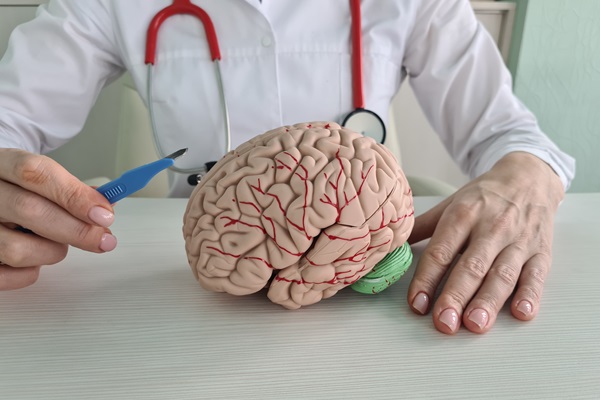Navigating Neurological Challenges: Insights From a Neurosurgeon

Navigating neurological challenges requires professional treatment from a neurosurgeon, personal perseverance, and healthy coping strategies. If you have been diagnosed with a neurological issue or are caring for a loved one who has, there is help available. Here are some helpful insights about the intricacies of the human brain and the comprehensive care needed to treat the diseases that affect it.
The human brain and neurological diseases
The human brain is central to every function and experience in a person's life, from their ability to move and touch to their cognitive function and memory. It contains an intricate network of neurons, blood vessels, and glial cells. However, when they experience a neurological challenge or disease, this can profoundly impact their overall quality of life. These diseases or conditions affect the brain, spinal cord, or central nervous system.
Types of neurological challenges
Several neurological diseases and challenges can affect people regardless of age, medical history, or sex. They can range in severity, symptoms, and how they affect one's life. Common neurological challenges include the following:
- Brain tumors
- Traumatic brain injuries (TBIs)
- Aneurysms and strokes
- Epilepsy and seizures
- Dementia
- Alzheimer's disease
- Parkinson's disease
- Amyotrophic lateral sclerosis (ALS)
Signs of a neurological disease
Many signs can indicate that an individual is experiencing a neurological disorder. For conditions that are sudden onset, such as a TBI or spinal cord injury, the individual will need immediate medical care to avoid long-lasting health complications or death.
However, for many other conditions, the symptoms may not be apparent in the early stages of the disease. Instead, the symptoms are progressive. For example, they may experience mood changes, gradual cognitive decline, speech problems, and sensation issues.
In both cases, these symptoms require in-depth diagnosis and treatment to ensure the individual receives the necessary care. Fortunately, neurosurgeons and other medical professionals are trained to diagnose and address these conditions. While many neurological conditions are not curable, patients can effectively manage them with the right medications and therapies with the help of a licensed medical professional.
Early diagnosis and treatment
Early diagnosis is essential in managing neurological conditions. Neuroimaging technologies like MRI and CT scans can help detect abnormalities in their early stages. For example, detecting a brain tumor like glioblastoma after experiencing subtle symptoms can improve the treatment outcome and expand treatment options.
That said, diagnosis is often only the beginning of navigating a neurological challenge. The next step involves the neurosurgeon working with other medical professionals to craft a personalized treatment plan that fits the individual's condition and unique needs. This treatment plan may include:
- Surgery
- Physical therapy
- Occupational therapy
- Speech therapy
- Medication
Learning to adjust to new life with a neurological challenge
It can take time to adjust to a neurological challenge, whether it is happening to the person themselves or a person they love. It can be difficult to accept that life will be different. They may experience a series of different emotions, such as anger, anxiety, depression, and denial.
However, with the right support network, coping strategies, and, in some cases, professional counseling, most people can adjust to their new reality. After diagnosis, a neurosurgeon can recommend local support groups and counseling services to provide emotional and psychological support. This type of care is essential to one's overall neurological treatment plan and can contribute to physical therapy.
Call our office for more information
If you or a loved one have been navigating a recently diagnosed neurological challenge, the Brain and Spine Neuroscience Institute team understands that it can be a difficult and frustrating journey. You are not alone, and we are to support you. Call our Palm Harbor office to learn more about our services or schedule an appointment.
Request an appointment here: https://www.brainandspineni.com or call Brain and Spine Neuroscience Institute at (813) 751-2029 for an appointment in our Palm Harbor office.
Check out what others are saying about our services on Yelp: Neurosurgeon in Palm Harbor, FL.
Related Posts
A cerebral hemorrhage occurs when a blood vessel ruptures within the brain, leading to bleeding that damages surrounding tissue. This medical emergency is a form of stroke that requires immediate attention to prevent severe complications or long-term neurological effects. By understanding the causes and risk factors for cerebral hemorrhage, you can identify if you or…
A stroke treatment center acts fast when a neurological emergency strikes, delivering critical care when timing matters most. These specialized teams move quickly, utilizing advanced diagnostics, efficient procedures, and coordinated support to manage even the most complex stroke cases effectively. Through quality care, patients and their loved ones can find a clearer path to recovery…
Neurostimulation offers a targeted way to manage symptoms from certain neurological disorders by sending gentle signals to precise areas of the nervous system. With careful planning, neurostimulation can reduce tremors, limit seizures, alleviate chronic pain, and enhance daily function without requiring major incisions.Neurostimulation uses a small, implantable system or an external device to deliver controlled…
Stem cell treatment shows promise for helping with neurological disorders by repairing and regrowing damaged cells in the nervous system. This advanced therapy is still being studied for its ability to support healing at a cellular level, potentially improving the patient's quality of life and daily function. Nevertheless, with continued advancements in medical research and…
